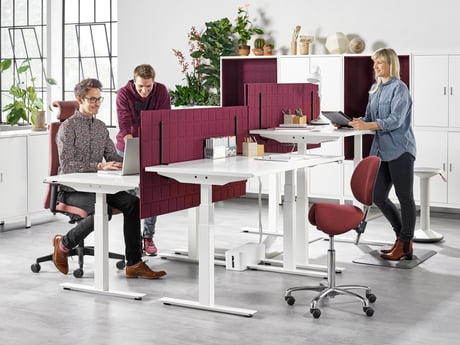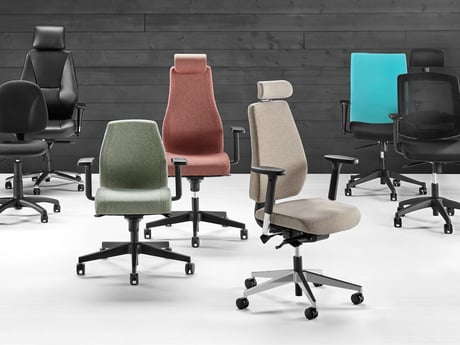Why Employers Should Encourage Tidiness in the Workplace

Some individuals might be of the opinion that a little messiness in the workplace is good for creativity. One reason for this could be that a clinically clean and organised workplace might be too robotic and not very inspirational. However, there is a fine line between a workspace that looks well-used and productively messy, and a workspace that is disorganized, dirty and wholly unproductive. The latter is usually a symptom of employees not clearing away things that are of absolutely no value or immediate use. One of the biggest reasons why employees might be having a tough time keeping their workspaces organised could be because they are not using and discarding items efficiently. Simon Reynolds, contributor to Forbes magazine, says that the ‘Golden Question’ to be asked is whether an object or item can be acquired again if needed. Clearing away all items and objects that can be easily acquired is one good technique to sort and organise workspaces.
However, why is keeping a desk or a workstation organised so important? Is it just for the sake of visual appeal and aesthetics? The physical environment a person works in has a big impact on their productivity. Neat, organised spaces have an open, inviting feel to them that could boost the mental clarity and function of employees. Also, having a thorough system of organisation and order at workspaces can be very important to employees, particularly around deadlines and periods with extra workloads. The following are a few benefits of having a tidy systematic workplace:
Makes a good impression
One of the biggest factors that should lead employers to pay attention to workspace tidiness is the impression it would have on clients, customers and visitors. A clean, smoothly-run office makes a good impression on clients and is also good for the company image. This is important as visitors and customers might judge a company as inefficient and unprofessional based on the appearance of the workplace. Apart from waste bins, companies could also ensure employees have lockers for the storage of their personal items. Having sufficient storage and filing cabinets is another solution that could help keep papers, laptops, chargers, coffee mugs, etc. off desks and workstations.
Reduces chances of clutter
Employers could encourage employees to clear up their desks at the end of each working shift or day. This will help employees take account of all the items lying around, get them to sort through documents and folders on a daily basis, and also help them end each day with a sense of completeness. Having waste paper bins at every workstation, at regular distances in an open plan office, inside cubicles, in copier rooms, etc. can help employees to immediately discard items they do not require, thus reducing the chance of cluttering.
Ease of resuming work
When employees return to an organised workspace every morning, they find it much easier to resume work. Instead of wasting energy every morning in cleaning, sorting and hunting for misplaced documents and files, employees can begin their work in a relaxed and calm manner. Beginning the day with a flurry of activity and anxiety in trying to clear papers, food trays, stationery, etc. off tables can put an individual in a bad mood. This could have a negative effect on their productivity for the rest of the day. Employers could implement a system of rewards to those employees who leave and return to a neat desk consistently, in order to encourage them to keep workspaces organised.
Good for overall health
Half-eaten apples, food trays and used coffee cups sitting around on tables can be sources of bad odours as well as diseases (Rains, 2016 ³). Organisations could plan and arrange separate eating areas for employees in order to help keep workstations clean. A kitchen or canteen area would mean wet and organic waste was disposed of in one place. Companies could invest in bin bags and a bin bag holder to make it easier to keep canteens clean. In fact, employers should plan and set up an efficient system of waste collection and disposal at workplaces in order to aid employees in their efforts to keep offices clean and organised.



